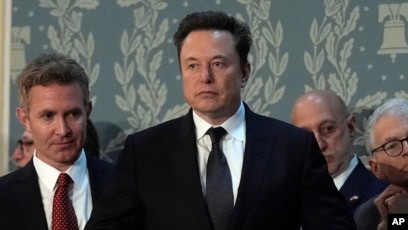In a startling turn of events, the New Hampshire primaries were marred by controversy as a deepfake robocall, impersonating President Biden, circulated among Democratic voters. The call, orchestrated by an AI startup named ElevenLabs, raised significant concerns regarding the manipulation of technology for political interference. As investigations unfold, the incident underscores the growing challenges posed by deepfake technology in the realm of electoral integrity.
The deepfake deception
Last week, amidst the fervor of the New Hampshire primaries, an unsettling voice echoed across the state’s Democratic voter base. The call, purportedly from President Biden, delivered a chilling message: abstain from voting in the upcoming primary elections. Yet, what seemed like an official directive from the President was, in reality, a sophisticated deepfake robocall, meticulously crafted to deceive unsuspecting recipients. Voice-fraud detection experts at Pindrop Security Inc swiftly identified the technology behind the deception, pointing fingers at ElevenLabs, an AI startup at the forefront of synthetic media creation.
ElevenLabs, riding on the waves of recent financial injections amounting to $80 million, found itself embroiled in a scandalous revelation. The company’s innovative tools, once lauded for their potential in entertainment and creative expression, now faced scrutiny for their role in political subterfuge. Despite ElevenLabs’ claims of providing a platform for harmless parody, the misuse of their technology in influencing electoral processes cast a shadow over their ethical standards.
Tracing the origins of the deepfake robocall
In the aftermath of the deepfake debacle, attention turned to the origins of the nefarious call. ElevenLabs swiftly launched an internal investigation, leading to the identification of a specific user responsible for the dissemination of the deepfake. Subsequently, the user’s account was suspended, signaling a proactive response from the AI startup. However, questions lingered regarding the extent of accountability and oversight exercised by ElevenLabs in preventing misuse of their platform.
Meanwhile, authorities in New Hampshire wasted no time in launching their own inquiries into the matter. The Attorney General’s office spearheaded investigations into potential violations of electoral laws, citing the call as a deliberate attempt to disrupt the democratic process and suppress voter turnout. The severity of the situation prompted calls for stringent regulations governing the use of AI technology in political contexts, highlighting the urgent need for safeguards against digital manipulation and misinformation.
Facing the fallout
As the dust settles on the controversy, the repercussions reverberate across political circles and technological domains alike. The incident serves as a stark reminder of the vulnerabilities inherent in modern electoral systems, susceptible to manipulation through advanced technological means. While ElevenLabs scrambles to salvage its reputation amidst mounting criticism, the broader implications of the deepfake robocall resonate far beyond the confines of the New Hampshire primaries.
Looking ahead, the onus falls on policymakers, tech innovators, and civil society to confront the challenges posed by deepfake technology head-on. How can we strike a balance between innovation and safeguarding democratic processes in an era dominated by AI-driven manipulation? The answer to this pivotal question may well determine the fate of electoral integrity in the digital age. In the wake of the deepfake robocall scandal, how can society navigate the complex intersection of technological innovation and electoral integrity to ensure the sanctity of democratic processes?





